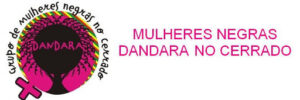The initiatives
The projects covered by the Call for GWGAB
The Call for GWGAB involved 6 organisations from Brazil’s Midwest, Northeast and Southeast regions in the states of Maranhão, Paraná, Minas Gerais, Ceará, Bahia, Alagoas, Pernambuco, Goiás, São Paulo the Federal District. Contemplated projects could be proposed in four areas: training, communication campaigns, advocacy and information materials. Below is summary information on the activities of each organisation.
1 – Quilombola Association of Conceição das Crioulas (AQCC)
Conceição das Crioulas is a quilombola community located in the municipality of Salgueiro, 550 kms from Recife, and was founded on 17 July 2000. The Association’s mission is to promote the development of the community, strengthen political organisation, ethnic and cultural identity and the fight for the quilombola cause. For GWGAB, AQCC developed the project “Franciscas, Marias and Dandaras: owners of their destiny”. The initiative was designed to encourage the development of interpersonal skills, such as leadership and oratory skills, in addition to strengthening the individual and collective self-esteem of at least 30 students from the José Mendes school. Popular community educators led the initiative, planned and carried out activities such as conversation circles, workshops and seminars related to the context of Conceição das Crioulas. The actions were based on Creole pedagogy, a school proposal that, in the view of the AQCC, opposes the current oppressive and Eurocentric model, and proposes a way of thinking about education centred in the context of the quilombola community.
2 – Dandara no Cerrado
The organisation is an arm of the black feminist movement and has existed for over 20 years with the aim of strengthening the struggle to build a fair and plural society without racism and sexism. At GWGAB, they resumed the Investiga Menina! (Investigate, girl!) initiative, which encourages black girls to choose careers in the exact sciences. Its action takes place on two fronts: 1) pedagogical monitoring at school with a direct intervention in the school curriculum; and 2) intercultural experiences, in which the students talk about the objects of study of black scientists both in the state of Goiás and in other regions of Brazil. The project was created in 2009, in partnership with Coletivo Negro/a Tia Ciata, at the Laboratory of Research in Chemical Education and Inclusion (LPEQI) of the Institute of Chemistry of the Federal University of Goiás (UFG) and the State College Solon Amaral (CESA), but had its activities interrupted due to the covid-19 pandemic. The Call for GWGAB supported the group’s return to CESA classrooms, which throughout 2022, offered weekly pedagogical follow-up in the regular shift, in partnership with teachers in the areas of chemistry, physics, mathematics and biology. In addition, they promoted meetings with 10 researchers in intercultural experiences.
3 – Women in Power
The organisation began its work in 2018, based on questions from the founders about the limited space for women in Brazilian politics. Currently, #ElasNoPoder (Women in Power) operates in 4 major areas: political training for women, the Impulsa platform, research, advocacy and social mobilisation. Within these axes, the NGO has already trained more than 500 women in politics, offers tools to assist in the articulation of women’s electoral campaigns, conducts polls on electoral equity and demands policies from public authorities that favour gender equity in society. For the Call For GWGAB, the NGO created the project Elas na Escola (Girls at School) with the theme: “I am a black girl of the now and a black woman in the power of the future”. With the intention of reaching 50 black girls including indigenous and quilombola girls – from the last grades of lower secondary education, in the Federal District (DF), the initiative built a training cycle with conversation circles, workshops and lectures on topics about women, training in politics, contact with black leaders, among other activities, in order to encourage self-recognition of participants as agents of social and political change.
4 – Luiz Freire Cultural Centre (CCLF)
CCLF is a non-governmental organisation that has been in existence for 50 years and works with the right to education, culture and communication. With extensive operations in Pernambuco state’s backlands, the organisation has been present in the city of Mirandiba for five years and has become a reference in quilombola and indigenous education. It is located in the historic centre of the city of Olinda which is the stage for many cultural and literary manifestations. For the GWGAB, the CCLF created “Girl Talk” with the aim of gathering 40 public school girls, primarily black, in their last two years of lower secondary education at the historic site of Olinda. The inclusion of topics such as mental health and self-care was seen as fundamental by the organisation in the project. For this, they had the support of psychologists who promoted community therapy for the girls and carried out necessary referrals in specific cases. The pedagogy of popular education and feminist pedagogy were the backbone of the project’s actions, considering that they are approaches that make use of language and dialogue as a starting point for the construction of learning and consider the dimensions of gender, race and class as structuring of inequalities.
5 – Geledés – Institute of Black Women
The non-governmental organisation has existed for 34 years and emerged in the country’s redemocratisation process, with the aim of ensuring the effectiveness of the right to citizenship. It established itself in civil society for the fight for equality, dignity and, mainly, with a focus on public policies seeking to guarantee the rights of women and the black population. The “Black Girls Go Beyond” project was created for the GWGAB and seeks to help keep girls in the education system, based on the methodology of peer action, thinking that “women are the best protectors of other women”. 18 guardians of the project were selected, black and non-black girls, but all at risk on the educational path and who were already involved in political and communication actions. The guardians were the bridge for the other girls, totaling 36 participants. The graduation programme created was structured around the following axes: Right to education; Gender and race inequalities in education; Peer communication; Educommunication for video production.
6 – Brazilian Association of Black Male and Female Researchers (ABPN)
ABPN is a non-profit civil association, created with the purpose of promoting teaching, research and academic-scientific extension on topics of interest to black populations in Brazil. In operation since the 2000s, the initiative has established itself as one of the fundamental bodies of the network of institutions that work to combat racism, with a view to formulating, implementing, monitoring and evaluating public policies for a just and equitable society. Minas Negras (Black Girls) was the project included in GWGAB and was conceived by researchers linked to ABPN. It was held simultaneously in six education centres in the states of Maranhão, Paraná, Minas Gerais, Ceará, Bahia and Alagoas. The states have a research centre linked to researchers who are part of the association and who took the project to public schools in the regions. The project was divided into two phases: the first focused on the theme of gender and race with the entire school community, including school boards and teachers. In the second, 42 black girls from the finalgrades of lower secondary education were selected to participate in conversation circles, interviews with women, group work, writing processes, among other initiatives.
Meetings between organisations to strengthen knowledge
With the aim of involving and encouraging organisations to share good practices, challenges, risks, opportunities and new ideas, three meetings were organised between October 2022 and March 2023.
The first event took place online on 27 October and was led by lawyer, Amarílis Costa. Also at the round table were Juliana Barros and Rita Lima. In December, the organisations left for Olinda and met in person for the first time. The Luiz Freire Cultural Centre (CCLF) hosted the second event on local engagement and grassroots organisations. The conversation was enriched by the multiple experiences and perspectives of the organisations, in view of the geographic diversity and the different ways of working with issues related to gender, race and education. In March 2023, the closing event took place in São Paulo, this time hosted by PretaHub. The organisations discussed the learning provided by the projects developed during the Call, in addition to sharing perspectives for the future. It was a moment of deep reflection and exchange of experiences and concerns about the next steps, in which all participants were able to talk about the practice and receive professional guidance from Amarílis Costa.
Final Considerations
A country of continental proportions like Brazil, carries heterogeneous socio-political contexts, and demands public policies capable of addressing the similar challenges experienced in all Brazilian regions, as well as the particularities of certain groups. This was the main reflection promoted by the six organisations participating in the Call for GWGAB when reporting their experiences in the implementation of their projects.
This accumulation of similarities and differences reveals that confronting racism and gender inequalities requires broad and transversal actions by different sectors of society. It is fundamental to strengthen the organisations that are dedicated to combating racist structures and to stimulate articulated action that promotes an agenda with a global, national and local perspective. This platform and the report celebrate not only the six participating organisations that have always been dedicated to promoting equity, but all the institutions and groups that understand these themes as priorities in their line of action so that it is possible to build a fairer society.





